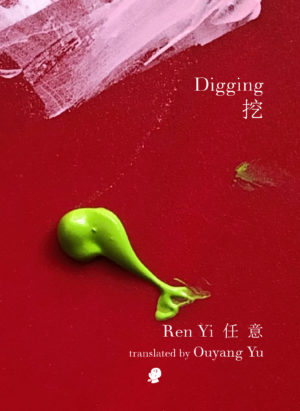Product Description
Though she was only fourteen years old, like many other Jews in Eastern Europe’s Pale of Settlement in 1907, Rebecca Lieberman gathered her few belongings and left for the United States. What follows is a unique and poetic story of history, war, mysticism, music, abuse, survival and transcendence against the backdrop of New York City in the ‘20s, ‘30s and ‘40s.
“A fourteen-year-old girl is launched by pogroms and poverty into the New World, fearful and alone. How can she know that her great-granddaughter would weave her story, through imagination and a careful reading of history, into a poetic gift to her memory, and for many more generations to come?”
Ramona Koval
“In Bobish Magdalena Ball picks up the thread that connects us to our ancestors weaving it into the fabric of family memory and public history, creating an intensely vivid and evocative work. A narrative montage of exquisite poems, where choices are funnelled by pogroms, racism, pain, poverty and hope, nourished by music and family. It was a deeply moving experience to read this book.”
Beth Spencer
“Magdalena’s stirring poems are unsettlingly familiar and eerily transcendent. The persistence, the endurance, the quiet resignation, somehow amounts to the telling of a small woman who is nothing less than mighty.”
Gillian Swain
“The importance of remembering is a cornerstone of the Jewish faith and in this account of the author’s Jewish great-grandmother as she navigates her life of exile, each scene is both clear eyed and evocative, poetic and down to earth, empathetic and far reaching. A marvellous, nourishing book of resilience.”
Judy Johnson
“Magdalena Ball’s powerful re-imagining of her great-grandmother’s life, from crossing the ocean in steerage, alone, at the age of fourteen, to the hardships of immigrant life in New York, is a vivid, lyrical portrayal of a woman that is as much an act of love as it is the preservation of a life, with its lessons of quiet courage in the face of crushing despair.”
Charles Rammelkamp
REVIEWS
“A series of charged, epiphanic moments, strung together like a radioactive necklace…Each line is an attempt, hurled like at the page a javelin, at answering the question what was it like when…These are not exuberant poems, nor as experimental as Niedecker’s, but quietly tough and compelling, like a winter tree standing against the cold.”
PIP SMITH, Sydney Morning Herald
“There is no sentimentality in Bobish’s poems because Magdalena Ball, with her talent as a poet can stir up emotions without being melodramatic…The poet treats the reality of Rebecca’s life and her misfortune with gentleness and sensibility, yet a power emerges from her words, yes, the power to keep going, to survive, to deal with the cruelty of everyday abuse and neglect…Magdalena Ball is such an accomplished poet that she has been able to portray a life in poetry form, not an easy task.”
BEATRIZ COPELLO, Rochford Street Review
“Ball writes beautifully of Rebecca’s departure, voyage and beginnings in the Bronx, evoking this complicated soup of experience with a nod to childlike wonder…Bobish is transgenerational literary trauma testimony, amounting to a kind of intuitive-affective translation that “comes with its own linguistic and creative reading of the experience of others.”
MEERA ATKINSON, The Conversation
“Following a unique and poetic story of history, war, mysticism, music, abuse, survival and transcendence against the backdrop of New York City in the ’20s, ’30s and ’40s…a wonderful prosody of verse conveying tragedy in a beautiful was, Magdalena is an expert at the juxtaposition of sadness with hope, terror with exquisiteness…creating this act of love from the historical bare bones of human tragedy.”
GEOFF NELDER, Geoff Nelder





